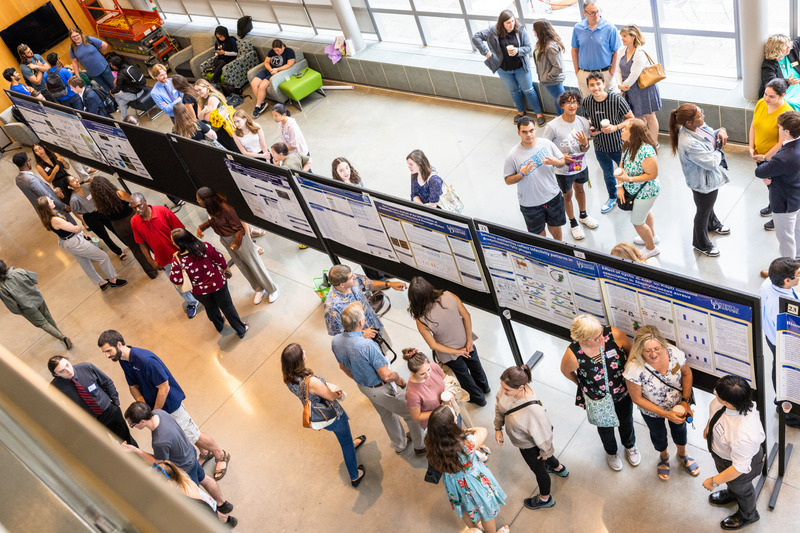Undergraduate Symposium Hits New High Mark

15th anniversary event draws record number of participants
The University of Delaware’s Symposium of Undergraduate Research and Creative Activity hits another highwater mark this year with a record 561 students participating in its 15th anniversary event.
The 2024 symposium runs from 8:30 a.m. to 5 p.m. Thursday, Aug. 8, at the Patrick Harker Interdisciplinary Science and Engineering (ISE) Lab.
Curious minds will find plenty to consider, as students present details of their work in a wide swath of disciplines — including biology, literature, business, fine arts, public health, artificial intelligence, agriculture, public policy, chemistry, physics, communication, environmental science, materials science and many more.
Poster sessions run throughout the day in the ISE Lab Commons area, alternating with five oral sessions located throughout the building. Details of each session and project are included in the program and the list of presentations.
The presentations cover students’ work during the past 10 weeks as they studied with faculty mentors, often working with graduate students and partners in industry and the community.
“The symposium provides an opportunity to celebrate the hard work that students and their mentors have engaged in over the summer,” said Rosalie Rolón-Dow, faculty director of UD’s Undergraduate Research Program and associate professor in the College of Education and Human Development. “Presenting research in a professional way such as the symposium is a critical part of student research experiences. It can help students feel that their research matters or is useful to others; can sharpen insights as students address questions from novices and experts that are part of their audience; and can deepen students’ feelings of belonging at the university, to the research community and in their field of study.
“For audience members, the symposium is a great opportunity to see all the remarkable and innovative areas of study that students are engaged in as they look to address real-world challenges.”
Support for this student work comes from many sources, including UD’s Summer Scholars program, the Delaware IDeA Networks of Biomedical Research Excellence (INBRE), Delaware Space Grant, UD Envision, the U.S. Department of Energy, the National Institutes of Health, the National Science Foundation, the McNair Scholars Program, the Summer Fellows Program, NASA, the U.S. Department of Agriculture, the American Heart Association, the UD Research Foundation, the Center for Plastics Innovation, the Delaware Energy Institute and alumni donors.
Read this article on UDaily.
Photo by Maria Errico.



